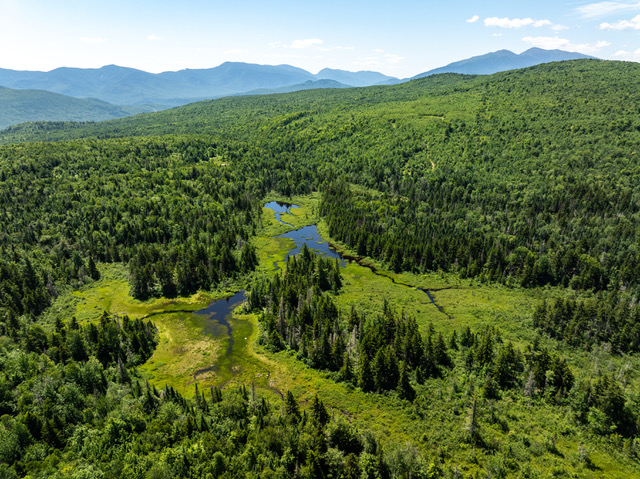Cascade Hill Forest will remain open to public for recreation
BERLIN, N.H. —The Society for the Protection of New Hampshire Forests (Forest Society) recently purchased and permanently protected a 730-acre parcel in Berlin, New Hampshire, now to be called the Cascade Hill Forest. The Forest Society will manage this land as a working forest, and it will remain open to the public for hunting, fishing, hiking, and snowmobiling.
Established in 1901, the Forest Society is a private, non-profit land trust and forestry organization that owns and cares for more than 63,000 acres across 196 conservation properties throughout New Hampshire. This recent land conservation success in Berlin contributes to a tradition of conservation in the Androscoggin River Valley and builds on the Forest Society’s recent acquisition of 3,700 acres in nearby Shelburne, New Hampshire.
“It seems right that the Forest Society owns and will manage in perpetuity a forest in the ‘city that wood built.’ Cascade Hill Forest will be managed as a sustainable working forest, and it also provides pedestrian and snowmobile access to woodland trails from the City of Berlin’s Cascade neighborhood” says Jack Savage, president of the Forest Society.
Cascade Hill Forest contains a mixed northern hardwood-conifer forest on the hillsides between Sugar Mountain and Jericho Mountain, with a 30-acre peatland and wet meadow situated between these two peaks. Perennial streams, including Tinker Brook, originate along these hillsides and flow southeast through the forest toward the Androscoggin River. Existing woods roads offer access by foot, and the land is presently used lightly by dog walkers, hikers, and hunters. Snowmobile Corridor #19 also follows some of these woods roads and connects to a larger network of winter trails in the region.
Accessed from the Cascade neighborhood on the Berlin and Gorham town line, the Cascade Hill Forest forms a bridge between the population center of Berlin on its east side and more than 100,000 acres of contiguous conserved forestland to the south, west, and north that has been protected as community forests in Randolph and Gorham, state parks, and the White Mountain National Forest.
This land conservation project was born out of a collaboration between The Conservation Fund (TCF) and Affordable Housing Education & Development (AHEAD), working in partnership to secure a new location for workforce housing in the North Country. To achieve this goal, TCF acquired 800 acres of land in Berlin from an individual who wanted to help the local community in a meaningful way. TCF subsequently donated 70 acres with development potential to AHEAD and sold the remaining 730 acres of forestland to the Forest Society.
AHEAD is a 501(c)(3) Community Housing Development Organization that has been serving New Hampshire’s North Country for more than 30 years. “Our goal and mission are to ensure housing is affordable for people living in the Berlin area and are happy to have partners in the Forest Society who can provide stewardship of accessible natural resources for the community,” explains Harrison Kanzler, executive director with AHEAD. “AHEAD is currently working on conceptual designs for the 70 acres that will help to grow the Berlin community in a sustainable and meaningful way for longtime residents, new families, and young professionals looking to call the North Country home.”
“One of the things The Conservation Fund does well is responding to community needs,” states Sally Manikian, The Conservation Fund’s State Director for New Hampshire and Vermont. “Community leaders made clear to me and everyone who worked on the Cascade Hill project that ensuring access to recreation and forestland is needed every bit as much as new housing. We’re working together to provide solutions and move us forward as a community.”
The success of this project was made possible by grants and contributions from private foundations, including the New Hampshire Charitable Foundation’s Randolph Area Conservation Opportunity Fund and the Neil and Louise Tillotson Fund, The Nature Conservancy’s Resilient and Connected Appalachians Grant Program, the Davis Conservation Foundation, onX Adventure Forever Grant, an anonymous foundation, and more than 50 individual private donors from across the state. These funds went toward purchasing the land, transaction costs associated with this acquisition, and stewardship funds necessary to care for this conservation property in perpetuity.





